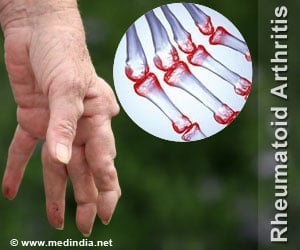It is the first research to document differences in how male and female physicians treat patients result in different outcomes for hospitalized patients.

‘The patients, if treated by a female physician, had a 4% lower relative risk of dying prematurely and a 5% lower relative risk of being readmitted to a hospital within 30 days.’





The researchers estimated that if male physicians could achieve the same outcomes as their female colleagues, there would be 32,000 fewer deaths each year among Medicare patients alone--a number comparable to the annual number of motor vehicle accident deaths nationally. The study will be published online December 19, 2016 in JAMA Internal Medicine.
"The difference in mortality rates surprised us," said lead author Yusuke Tsugawa, research associate in the Department of Health Policy and Management. "The gender of the physician appears to be particularly significant for the sickest patients. These findings indicate that potential differences in practice patterns between male and female physicians may have important clinical implications."
Previous studies have found differences in the way female and male physicians practice -- for example, female physicians are more likely to adhere to clinical guidelines and provide more patient-centered communication--but this is the first national study to look at whether the differences in the way male and female physicians practice affect clinical outcomes.
The researchers analyzed data from more than 1 million Medicare beneficiaries age 65 years or older hospitalized with a medical condition and treated by general internists between 2011 and 2014. They adjusted for differences in patient and physician characteristics, and considered whether differences in patient outcomes varied by specific condition or by severity of illness.
Advertisement
Female physicians now account for approximately one third of the U.S. physician workforce and comprise half of all U.S. medical school graduates. There are important gender differences in how women physicians are treated--they are less likely to be promoted and are generally paid less, said senior author Ashish Jha, K.T. Li Professor of Health Policy and director of the Harvard Global Health Institute.
Advertisement
Source-Eurekalert









